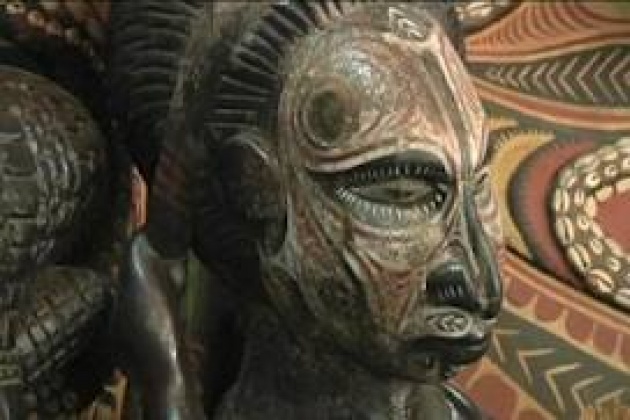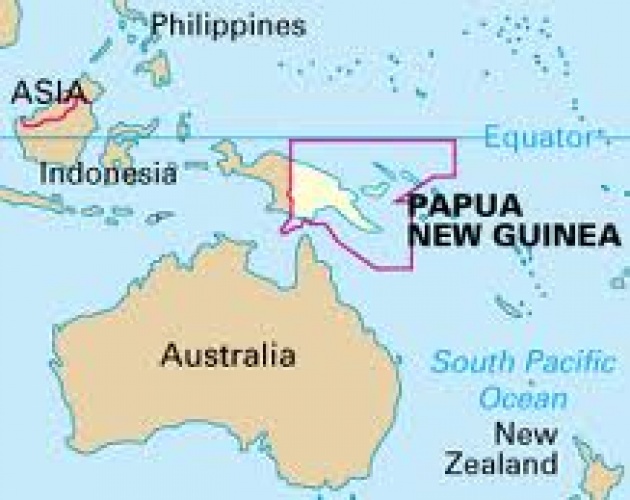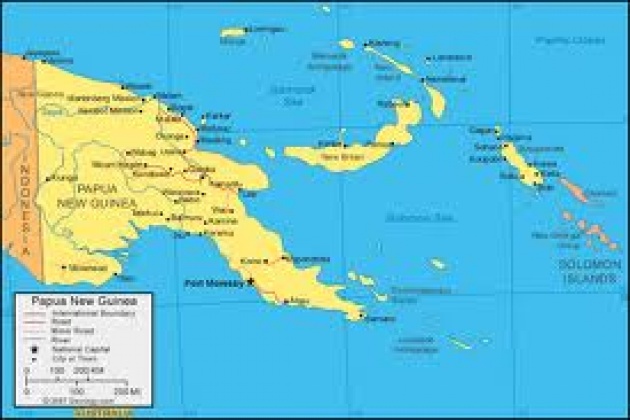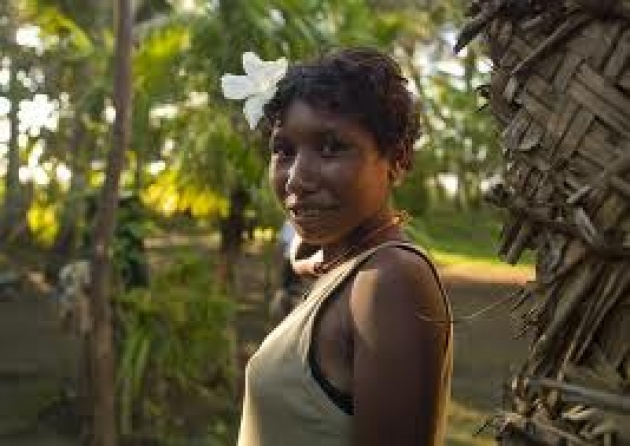
Papua New Guinea is a country that occupies half of New Guinea, the second largest island in the world. One of the last territories reached by explorers, it's widely considered one of the most culturally diverse places on the planet. There are several hundreds of spoken languages in the island, and most of the 7 million inhabitants still live in rural areas. This situation contributes to the isolation of good part of the population, who still goes through their lives with very little contact with the outside world.

Thanks to its isolation, Papua New Guinea is a fascinating place to visit. Uncontaminated nature, delicious food and friendly people make this destination a true journey of a lifetime. Although I have never been able to travel to this country, it has been on my bucket list for years. It's even hard to meet somebody who has visited PNG! The charm of this faraway corner of the world is undeniable, and in great part is due to its isolation. Their rural culture has had few chances of getting spoiled by others, and good part of the population still continues to live the way they used to centuries ago, following the same priorities and believing in the same divinities. When reading travelers' reports, time really seems to have stopped there.

Yet, isolation is not just a good thing. Rare exchanges with the "developed" world also mean stronger dependence on local laws, with limited chances of alternatives. In other words, you gain freedom from outside influence, but you lose freedom to object the rules of the community - should you disagree with them - and don't have the support of more democratic regulations that have developed in larger political systems through the centuries. Living in such restricted communities must feel like "either their way, or no way", with punishments often more severe than in our world. Sporadic interactions with the outside world also mean the put in practice of a rudimentary health care system, with people often contracting - and dying from - diseases that would be easily healed with the appropriate medications. Information about the different types of illnesses and what they cause to the human body is also scarcely available, which often causes confusion among the people in the community. Ignorance starts a blame game that can get ugly, to the point of becoming an uncontrolled violence that needs to find an scapegoat.
In the rural culture of Papua New Guinea the belief in sorcery is very strong. Good part of the population is convinced that there people who hold some type of magical power. Those alleged individuals - called sangumas - are compared to sorcerers or witches, and are often unjustly accused of putting curses on people. When somebody gets sick and nobody can explain the reason, sometimes the family members of the misfortuned victim see this as the manifestation of the action perpetrated by a sanguma. People often feel this way also when a natural disaster happens. When they don't have any control over an event and can't find who's responsible for its happening, in their blind ignorance they prefer blaming these "supernatural" individuals, whose only fault was finding themselves in the wrong place at the wrong time. And when that happens, they are capable of committing atrocious crimes. Giving an accurate account of these crimes is very difficult, because (1) they are underreported, and (2) this practice goes back a long time in the history of this area. However, just in the last couple of months, there have been several incidents that were brought to global attention.
A couple of months ago, Kepari Leniata was stripped of her clothes, tied up and burned alive, while a crowd of hundreds of people stood watching. She had been accused of perpetrating sorcery at the expenses of a young boy, whose death seemed too suspicious to her mother and uncle. They decided to blame Kepari for his death, and and barbarically murdered her. Local authorities reported that they couldn't intervene because the mob was too numerous for them to try and save the woman. Later in the month, the couple of relatives of the boy were charged by the police. Kepari was only 20 years old.

Last week, another woman was tortured and brutally killed after being charged of sorcery by an angry crowd. They cut her head off. To no surprise, local authorities declared to find themselves heavily outnumbered by the mob, and couldn't protect the woman. Because of these crimes, Papua New Guinea has been receiving global attention during the past few weeks, with more cases being reported. Still last week, six more women and one man were tortured and killed in similar circumstances. As previously described, local authorities were completely powerless. In 2009 there was a sequence of killings similar to the above, with most of the victims being women. Papua New Guinea lawmakers finally decided to start a reform process aimed at eradicating such barbarities, but the road is still long and arduous. A special commission found out that many people were using accusations of sorcery as an excuse to gratuitously murdering innocent women, a thought that puts chill into my bones.
As I was reading these articles, I immediately created a parallel in my mind between the misfortune of these women in Papua New Guinea and countless women in Afghanistan, whose most basic rights are violated on a daily basis. Afghan women don't benefit from the type of freedom and independence most women experience in western countries. Forced marriages, domestic violence and honor killings are still regularly occurring, and many women are still forced inside their homes, with very little chance to see the outside world. Adultery is punished by being stoned to death, and innocent women are often wrongfully accused of betrayal, and murdered just because their husbands didn't want them anymore. I can't help comparing the violation of women's rights in Afghanistan with the repression and injustice experienced by so many women in Papua New Guinea, and I fail to comprehend how such violent incidents can still happen - and go unpunished - today.
Women's Annex is a self-sustaining digital platform - launched by Film Annex - that can offer a viable opportunity for many women in the world who find themselves repressed by others. The site promotes female empowerment across the globe, and provides women with additional tools to reach independence. By sharing their stories on this website, not only they can denounce their perpetrators, but they can also give support to others in similar situations. A woman who publicly fights back and condemns those who violated her can represent a wonderful inspiration, and motivate thousands more to do the same. Women's Annex provides the stage for these stories to be published, and it even rewards writers with a monetary recompense.

Those women in rural Papua New Guinea who feel that they don't have alternatives could utilize Women's Annex to get out of a system that heavily penalizes them. However, the availability of Internet is so sporadic that very few could benefit from it. A much more massive cultural change is necessary. National laws are on their way to be changed, but more is needed to eradicate the belief in sorcery, because even the well-educated fraction of the population still doesn't know what to think about witchcraft. On the other hand, medical authorities need to be better at communicating with the countryside, especially for what concerns the possible causes of death of human beings. Peter O'Neill - Papua New Guinea' Prime Minister - has vowed to reverse a controversial sorcery law, and intends to start an official death certificate system. In the meantime, tribal beliefs are still being prioritized at the expenses of innocent souls.
Giacomo Cresti
http://www.filmannex.com/webtv/giacomo
follow me @ @giacomocresti76



